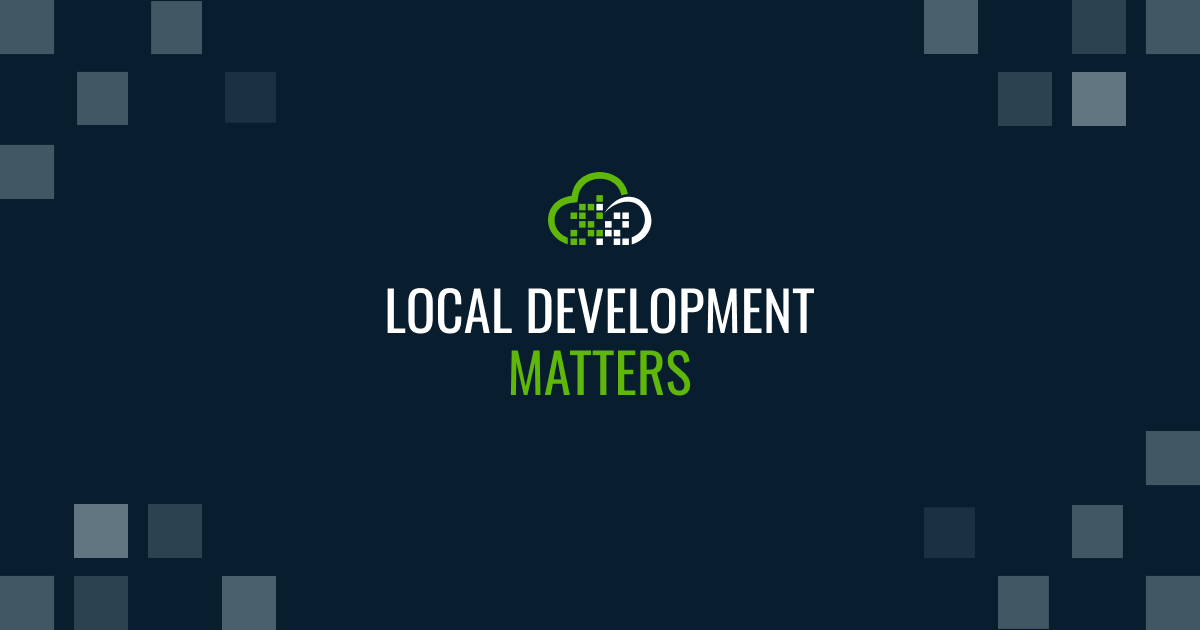Why local Salesforce development matters
Alex Colburn – June 2, 2021

Whether you’re in the process of implementing or evolving your current Salesforce platform, choosing the right development partner is a crucial decision to make. Internal team building strategies and platform expertise aside, the decision almost always comes down to one question: who will deliver the best results for your business?
Let’s break that down. There is an overwhelming amount of developers who make promises on following through with your Salesforce vision, so who do you decide to partner with? Are you considering how they are to work with? What’s their process? Are there good DevOps? Are they certified?
And more than that, how will they operate in your current environment? Do you want someone who can look you in the eye and work through problems together in half the time, or someone who you need to spend more time explaining your business logic to than they spend programming? Do you want a partner who will be able to see the work beyond the code and beyond the implementation, or a team who just meets a project requirement?
Our bet is the latter. But more than a bet - it’s our experience. Having a local Salesforce partner in the trenches can be the difference in an on-time deliverable, a better integration, or a better solution. We are proud to be a Minnesota local Salesforce partner, and find that the best partnerships are made from communication and flexibility to our client's needs.
Asking the right questions, delivering the right results
While offshore development has come a long way over the years, experience has taught us that there are still challenges that can be difficult to overcome with an offshore team: the communication lag and complexity, the lack of flexibility they have, and the access that you have to the developers.
When it comes to delivering the right results to business units, the responsibility typically falls on the developer. A Minnesota local Salesforce developer has the ability to ask clarifying questions off the cuff and gain more insight into how the business uses their technology day-to-day. Through this process, better solutions are often brought to light, and more value is delivered at the end of each sprint.
Now contrast that with an offshore Salesforce development team: when your team is at the morning standup, the offshore team is in the middle of their first REM cycle. Although every effort can be made by the client to communicate what needs to be solved, things fall through the cracks either from miscommunication or missing context. These situations often result in a “miss” by the offshore Salesforce development team, and then the refactoring reinterpretation cycle begins. We call this the “offshore loophole”.
Assume & Adapt!
Offshore Salesforce development teams are known to program what is on the requirement documents.
“Wait… isn’t that what’s supposed to happen?”
Well, yes and no.
As consultants, it’s our job to read between the lines and understand what the client is really asking for. If tech and business units are perfectly aligned, this can be a tricky feat.
As a Minnesota local Salesforce development partner, we’ve found that the best way to fulfill the business’ needs is by assuming the role of the users.
Our developers seek to understand the client and their business by asking questions and then refining the requirements so that the right problem is solved. Without being able to talk through the requirements, the reasoning behind them, and really understanding what the user is trying to accomplish, the requirements document doesn’t hold much value.
It boils down to...
Choosing the right partner to implement or evolve your Salesforce may seem like an overwhelming task but really, it boils down to finding the team that works best with you.
Keeping projects local won’t always magically solve all of the problems that could happen during a Salesforce project, and offshore development projects don’t always fail. But by keeping your Salesforce projects local, you’ll have a faster turnaround, clear communication, and business-driven solutions.
We’ve made a conscious decision at Digital Mass to only hire Minnesota local Salesforce developers. We teach our development team to quickly learn your business, understand the intent of each requirement, and design a solution that’s done the right way. Through experience, we’ve found that the ability to shadow a business user or quickly ask questions to the product owner at the beginning of an engagement provides an immeasurable amount of context for a developer. As they ask clarifying questions and gain more insight into how the business uses its technology day-to-day, better solutions are brought to light, and more value is delivered at the end of each sprint.
If you’re in the market for a Minnesota local Salesforce development partner that will accelerate your Salesforce platform, contact us, or learn more here.